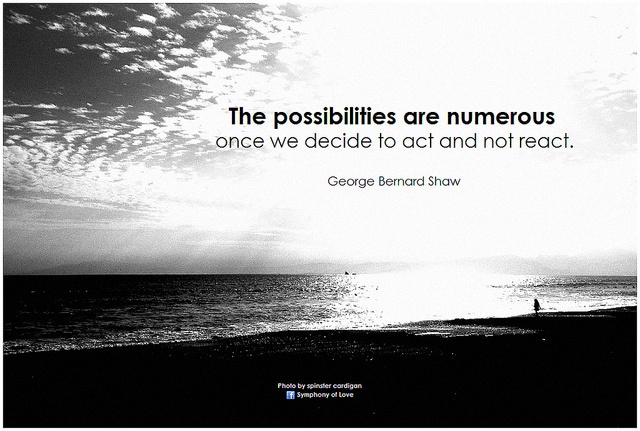Micro-actions are a powerful productivity tip. A micro-action is a tiny step. It is an action you can accomplish from start to finish in seven minutes or less. For example, in seven minutes you can:
- Leap out of bed with excitement, like this red dog.
- Make a phone call to your best client to invite him or her to lunch
- Set a reminder on your phone so you won’t be late for the staff meeting
- Write a thank you note
- Clean out one drawer at your office
- Throw away binders from workshops you attended five years ago
- Call to follow up with a prospective customer
- Choose a book on productivity you would like to read
- Reserve a conference room for your team meeting next week
- Handwrite your thoughts for three objectives you have for the team meeting
- Walk around the block. Walk up a few flights of stairs. Stretch.
- Drink a cup of water or laugh out loud (it has been proven–happier people are more productive)
If you choose to take tiny steps forward every day, these tiny micro-actions can compound and boost your daily productivity exponentially. Understanding the power of micro-actions and consciously choosing which you will use and which you will delete from your life are the keys to improving your personal time management and your productivity.
Think of it this way: every action you take during the day is actually a micro-action. From crawling out of bed, to brushing your teeth, to getting dressed for work. Every single action is a micro-action!
Micro-actions are incredibly powerful because they are so easy to do. They can help you become “unstuck”. When you begin working on a new project ask yourself, “What micro-action could I take right now that will help me finish this task/activity/project/goal?”
The objective of this article is to help you understand how much time is lost in the gaps of life. There is a lot of hurry up and wait. But if you have five places in your work day where you are stuck in a short gap–you can accomplish five micro-actions. There are many small, unfinished tasks you never seem to have time to complete.
The list below is categorized so you can make use of the gaps in your schedule and boost your productivity starting today!
The Night Before Work
1. Keys. Always put your keys in the same place.
2. Closet Organization. Terri Fulton, Certified Professional Organizer®, encourages her female clients to place all of their clothes in the closet based on color and sleeve length. If a woman has five different black tops, it takes very little effort to look at the section of the closet with all of the black tops and move from short sleeves to long sleeves to find the appropriate shirt without wasting time.
3. Clothes. Decide what you will wear the night before. Place everything you plan to wear in one location. This includes socks, shoes, ties, jewelry and any other accessories you will need. (How much time have you spent looking for the right shirt when you have a meeting that begins in less than an hour?)
Getting Ready in the Morning
4. Water. One of the most important habits to dramatically improve your productivity is to drink more water. You already know you should drink eight 8-ounce glasses of water per day. This is a simple productivity hack. Drink eight ounces of water when take your vitamins, or when you first wake up.
5. Walk. Beth Ingram, a retired Sr VP from the Arkansas Hospital Association shared one of the best getting ready practices I have ever heard. When she was working, each morning she would walk on her treadmill for 10 minutes and then get ready for the day. If her goal was to walk briskly for 30 minutes a day, she knew this 10-minute discipline would help keep her on track.
6. Review. Before leaving the house take a quick look at your calendar and to-do list. How many times have you made it halfway to the office and realized you left something important at home?
Arriving at the Office
7. Leave for the office seven minutes early. My brother taught me that arriving on time means you are arriving late. Leaving a few minutes ahead of schedule each day can easily reduce the amount of stress you might feel if you are caught by one too many stoplights.
8. Arrive on time. Consider the impact of arriving on time and ready to work at 8:00 every morning, rather than dashing into your office at 8:15 and still having to grab a cup of coffee, pull your mail out, say hello to a couple of people. By the time you sit down, it’s already 8:30. Assuming you work 20 days a month, you are wasting at least 10 hours of productive work time each month, or 560 hours per year.
During the Work Day
9. The 10 Minute Tidy. John Arnold, Chief Inspiration Officer of The 7 Minute Life, shares what he calls “The 10 Minute Tidy” concept. Take 10 minutes each morning to “tidy” up your desk and 10 minutes each afternoon to “tidy” up your desk again.
10. Office Supplies. Have all your office supplies easily accessible. While I am not a personal organizer, I have many friends who are and one of the most intuitive but often overlooked productivity needs is to have all of your regularly used office supplies easily accessible. As an example, I moved my work desk into a new space about six months ago, and for six months I was digging through my desk drawers looking for Sharpies, my ruler, sticky notes, scissors, adhesive tape. By my own estimate I wasted at least 10 to 15 minutes a day looking for these items in various places.
11. Everything should have a place. Every single work item or supply that you use regularly should have a single location specifically for that supply. Scissors should have a home and paper clips should always be in the same place.
12. Prioritize each task. Once you know the outcome of a project, create a list of action steps that will allow you to complete the task. Then prioritize each of the steps in an order that works in the most efficient way with the least waste of time and effort.
13. Capture all of your notes and to-do lists in one place. As you begin to improve your organizational and productivity skills you will want to choose to have a single place to capture all of your goals, notes, action steps and to-do lists. You may choose to use some sort of daily planner or even a spiral notebook. For the tech-savvy, there are many apps available for your smartphone to help with this.
14. Start and finish one task at a time. Many people start a project or task and move it to 98% of completion, only to stop short of finishing the last 2%. Make it a point to start and completely finish one task at a time.
15. Create repeatable processes and systems. Take the time to stop and think about the routines you and your team do over and over every day. Choose to create processes and systems to streamline those activities.
16. Use checklists. As you create your processes and systems, create checklists to use each time. A checklist provides consistency and serves as a protocol for you and for your team. It also provides the opportunity to cross off what has been accomplished and it will clearly show what is left to do.
17. Staff meetings. Arrive seven minutes early to your next staff meeting and use that time to make a list of people you would like to write a thank you note to.
18. Just say no. Don’t be afraid to politely say no. Productivity is often a “yes” or “no” decision. If you are asked to participate in an activity that doesn’t line up with what you are trying to accomplish, politely say “No, thank you.”
19. Get rid of the distractions. True productivity occurs when you are able to totally focus all of your mental and physical energy on one task at a time. To improve your productivity, you may need to get rid of the distractions in your day.
20. Stretch. The human brain can only take so much. Make sure you take time during the day to stretch, walk and stay hydrated.
21. Use a timer. A timer can help you improve and monitor your current productivity skills. Set the timer for 30 minutes and focus on completing one task at a time. Work until the timer goes off, and you will be amazed at how much you can accomplish when you are not looking at your watch every five minutes.
22. Work with concrete deadlines. Aren’t you amazed at how much work you can get done the day before you leave for vacation? Knowing that you have a concrete deadline can have a positive influence on the volume of work you accomplish.
The End of Your Work Day
23. Clean out your car. It is surprising how much trash and clutter can accumulate in your car. Take a few minutes every day to clean the trash out of your car.
24. Create a written daily plan of action. Take seven minutes to think about what you would like to accomplish the next day, and create a written daily plan of action. Having a written daily plan of action ranks as one of the most powerful time management and productivity tools person can implement.
25. Relax. Even seven minutes of truly relaxing without noise or interruption will make you more productive.
26. Be happy. There are so many articles that talk about the power of happiness and laughter. Happy people are simply more productive.
27. Go to bed. It takes less than seven minutes to decide when you will go to bed and when you will choose to wake up. Get a good night’s sleep for a vast improvement on your productivity.
Featured photo credit: The Absurdity of Time [Explored] / jDevaun via flickr.com














































